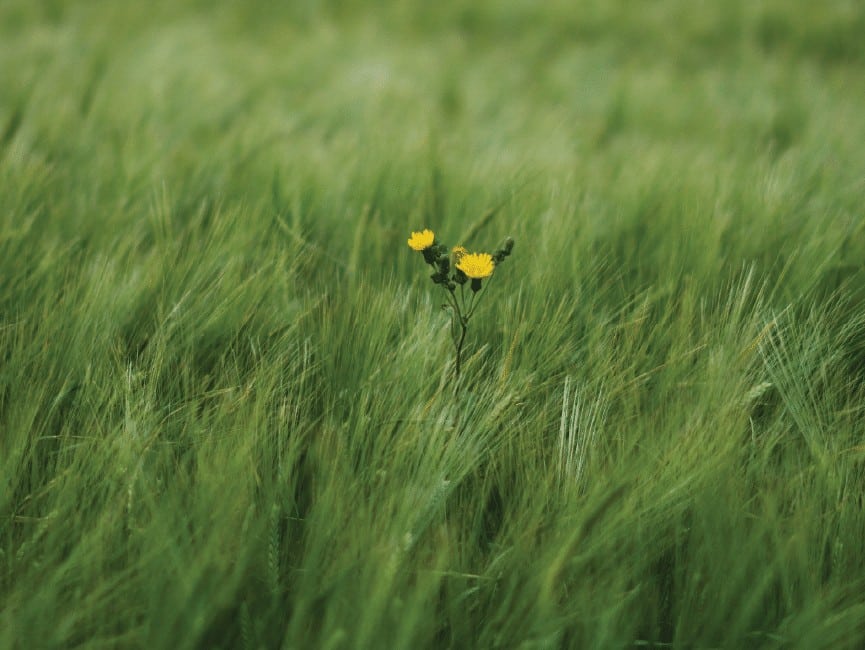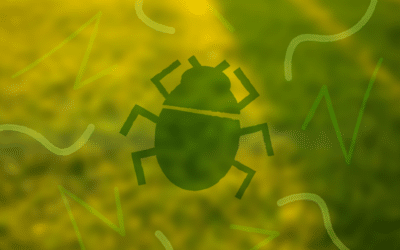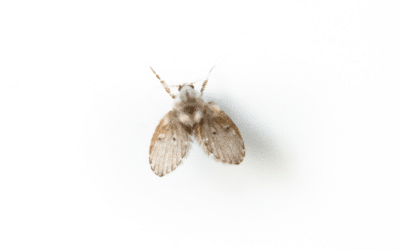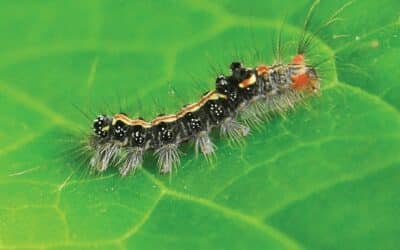An herbicide and a pesticide may seem like two different things. One kills plants while another is used to kill pests. But this is where they actually become more similar to each other. In fact, people categorize any unwanted plants and weeds as pests. This means that herbicides and pesticides are not that different from each other. To better understand how similar they are, we first have to understand what each of them treats.
What Herbicides Treat
A herbicide is used to treat weeds and other unwanted plants. It comes in a chemical toxin form that is deadly to plants and weeds. Herbicides are generally put into two different categories. They are:
Selective Herbicides
Selective herbicides only kill one plant in an area full of a different variety of plants. For example, a herbicide that only kills weeds will kill any weeds on the property but not harm any grass. Use a selective herbicide if you only want to target a certain plant or weed on your land and avoid damaging other plants.
Non-Selective Herbicides
Non-selective herbicides are the opposite of that. They kill any plants in the area that they are applied to. They can’t distinguish any plant varieties from others, so they kill anything in front of them. For example, if you have 5 different varieties of plants in the area that you apply the non-selective pesticide, it will kill all the plants in that area. Use a non-selective herbicide if you have many unwanted plants or weeds in one area you want to get rid of.
Methods Herbicides Use to Kill Plants
Herbicides kill plants through two different methods. The first method is in direct contact with the plant. Any part of the plant that comes into contact with the herbicide will die. For example, if a leaf of a flower touches the herbicide, that leaf will be harmed. The rest of the flowers won’t be as affected.
The other way a herbicide works to kill unwanted plants or weeds is through a more systematic way. Let’s say you apply a herbicide to the plant you want to treat. Wherever you apply the herbicide, it will not just harm the area it was applied to; it will also start traveling throughout the plant. It can travel all the way to the roots, effectively killing the plant. Some herbicides can even stop the growth and development of future plants!
So basically, herbicides kill weeds and any unwanted plants using different methods and chemicals. It just depends on what you need to get rid of and how much of it there is. Now, let’s see what pesticides treat.
What Pesticides Treat
Pesticides are used to kill any pest type, whether it’s rodents, insects, arachnids, and even plants. Yes, herbicides are actually a type of pesticide since weeds, and other unwanted plants are considered pests. In fact, pesticides are grouped based on what they treat/kill. The following are some groups of pesticides.
Insecticides
Insecticides are used to kill any insects it comes in contact with. Most, if not all, insecticides work by getting inside of the insect. There are three different ways it can get inside of an insect. There is a dermal way in which it enters them through the skin. There is an oral way in which the insect actually consumes the insecticide. The third way is by inhalation, which usually involves a more air-based insecticide.
Herbicides
As mentioned before, herbicides kill any unwanted plants or weeds using chemicals either through contact or more systemic means such as being absorbed through the soil or traveling to the roots.
Rodenticides
Rodenticides work to kill rodents. Many rodents, such as mice, can bring with them many unwanted diseases and viruses. This is where a rodenticide can help ease your rodent problem. Rodenticides mostly work by having rodents consume them. To do that, you have to bait them into thinking that the poison is food. This is why many rodenticides look like small pellets as they look desirable to many rodents. Once ingested, the poison works as an anticoagulant by reducing clotting and causing excessive internal bleeding, killing the rodent.
Fungicides
Fungicides, of course, are used to treat many types of fungus. They work by killing any fungi as well as any of their spores. People commonly seek fungi treatment to prevent any harm to their other plants in their gardens. Fungicides kill fungus by killing and inhibiting the growth of the fungi that is causing the disease.
As you can see, pesticides treat/kill whatever they are made to treat/kill. There are many more types of pesticides out there, but some of the more common ones are used in pest control today. Whatever pest problem you may have, the chances are that there is a treatment for it!
Ask Your Landscaper Specifically What They Treat
Before hiring a landscaper, it is important to know what specifically they treat. Just because you hear the word pesticide does not mean that your insect problems will automatically be resolved. Make sure to clarify what exactly they’re treating.
Fortunately, we here at Meers Pest Solutions are experts in the field of pest control. Using our integrated pest management (IPM) system, we can stop and maintain many pests’ growth and spread. You can rest assured that you are in capable hands.
Conclusion
So, now you know that herbicides are actually a type of pesticide! Hopefully, you can use this new information the next time you ask your local landscaper or pest control to help address your pest problem. Fortunately, there is almost always a solution to treat those pests. It is always recommended that you have an expert use these pesticides to treat any pests you may have.
You can visit our website here if you have any more questions about a variety of pests and how to treat them.




